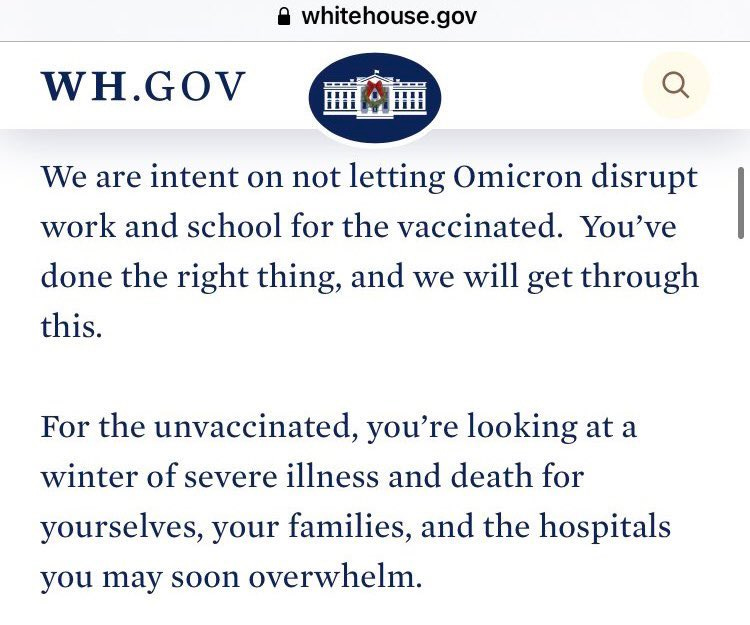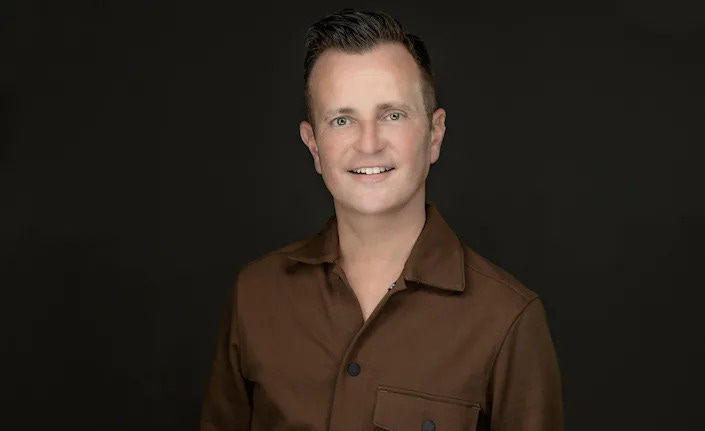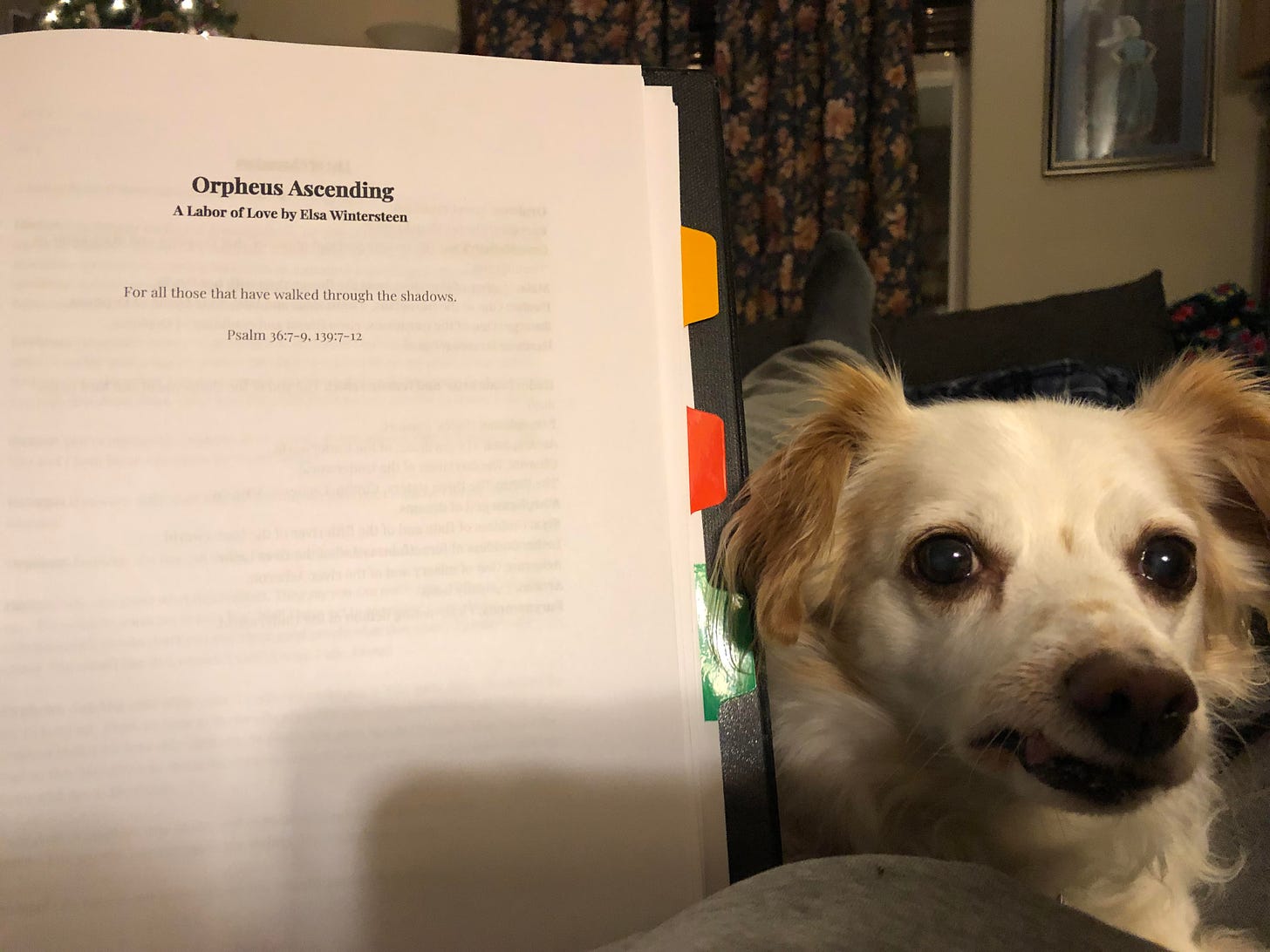Dear Reader,
If there is a week during the year that I miss being on a school schedule, it is the one before Christmas. Granted, I usually still worked part of the time during the first week of Christmas “break,” but even if I was in the office, the days didn’t include bells ringing or people rushing; and, if I was home, well, I was home (and according to Dorothy, there’s no place like it).
Speaking of home, after brunch and exchange of gifts this morning here in Montana, Megan, all four girls, son-in-law Bruce, Peaches, and I are hopping on a plane for a week-long visit to the Dunham family farm in west central Illinois. Thanks to help from my folks, we were able to buy tickets for everyone in early October before the rates skyrocketed. Grateful to be flying instead of driving the 44-hour round trip!
Traveling is always interesting, but considering all that I’ve been reading this past week about the Omicron “wave” and people’s fears of it, I’m especially curious as to how crazy things could get. Our German brethren in Berlin have come up with a novel solution for their Metro travel stresses, but the White House has not been as helpful, fueling American fires of fright:
Love the Orwellian rhetoric there, as well as the “unity” tone Joe continues to bring. Festive!
If someone gets nuts on our trip, I’ll provide real-time Christmas Eve coverage via Twitter and Facebook; rest assured, it’ll at least be as accurate as any national news media outlet’s.
Merry Christmas!
Craig
P.S.: As a reminder, you’re welcome and encouraged to email me directly with feedback, ideas, links, etc. at cmdunham [at] gmail [dot] com. Just know that, unless you specifically tell me not to, I may quote you here (though it will always be anonymously).
Hot Takes (Pastor Edition)
Three American pastors in the news caught my eye this week, all for different reasons:
“First Baptist Dallas Congregation Cheers Trump, Breaks Out into ‘USA!’ Chant after He Speaks” - I don’t know much about Pastor Robert Jeffress, but I pay close enough attention to know the church he leads could legitimately be considered Ground Zero for the movement known as “Christian nationalism.” And, true to form on Sunday, Jeffress gave up his pulpit to its high priest, former President Donald Trump:
“The former president was invited to speak at First Baptist Church of Dallas on Sunday, Dec. 19, by the church’s pastor, Robert Jeffress. Trump was in town to hold a rally that afternoon with TV personality Bill O’Reilly. The rally was not open to media coverage, but the morning church service was.
Speaking to an estimated crowd of 3,000 inside the modern sanctuary of First Baptist Church — and an unknown number of others in overflow rooms and watching online — Trump acknowledged he was ditching the prepared Christmas message he was supposed to give and was, instead, speaking ‘from the heart.’
The former president went on to speak about a variety of problems,
“including crime and looting, border security, inflation, gas prices and the U.S. military withdrawal from Afghanistan, which he called a ‘mess’ even though it was set in rapid motion by him in his final days as president.”
None of this seemed problematic, at least not in Jeffress’ mind:
“Speaking to reporters after the Sunday service, Jeffress said he didn’t believe Trump had said ‘anything overtly political.’ And he said the full house is indicative of the nation’s love for Trump.”
Funny. I always thought the goal of Sunday worship was to have a full house indicative of the congregation’s love for Christ.
(For the sake of consistency, let’s not miss that Democrat Congresswoman from California Maxine Waters was also invited to take over a pulpit at Macedonia Church in Los Angeles, spewing plenty of politics on the same Sunday morning. Strangely, there was not nearly the news coverage, though I did find video. Whether it’s Trump or Waters, politics in the pulpits is idolatry and a cult of personality.)
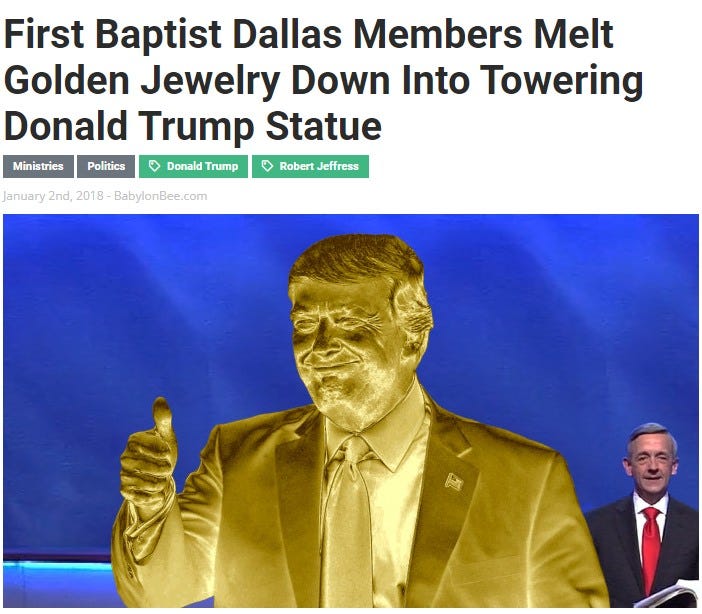
The Babylon Bee, a satirical news site with a more pro-Trump slant than some want to admit, drew a golden calf parallel with this graphic in 2018.
“Pastor Craig Groeschel Leads VR Church Service Where Two People Trust in Jesus” - When we lived in Oklahoma City, Life.Church - the multi-site megachurch headquartered in Edmond and started by Craig Groeschel - was all the rage. Much of the attraction for this younger demographic church was (and still is) technology. Life.Church launched the YouVersion Bible App in 2008, which has been installed on over 500 million unique devices world-wide. Thus, this statement from a Life.Church spokesperson on December 17 shouldn’t surprise anyone:
“With recent emphasis on the metaverse, organizations around the globe are taking a closer look how to leverage virtual reality—including the local church. Last weekend, Life.Church hosted its second-ever church service in Microsoft’s virtual reality platform called AltspaceVR. Nearly 100 people attended the service, and two people made the decision to follow Jesus.”
The press release went on to say:
“While critics might question if real connections can be made in the metaverse, Life.Church has seen countless lives changed through relationships in digital spaces over the years. With 15 years of online ministry experience (including services in Second Life in 2007), Life.Church has found that people are often more willing to let their guard down and have deep, meaningful conversations more quickly from the safety of anonymity than they are face-to-face.
As new opportunities like the metaverse emerge, Life.Church continues to be passionate about leveraging technology to bring hope to people where they are, especially those who might not otherwise set foot in a physical church.”
In some ways, one could argue that this is simply a digital version of the seeker-sensitive movement of the 1980s (the “meet people where they are” language is certainly familiar). What’s different (and more ancient) is the experiential gnosticism that Life.Church and others are potentially embracing and assuming as real life. Having toyed with the multi-site video expansion of the 2000s, churches, pastors, and parishioners may think this is the next logical step (and it may be, technologically speaking), but I question its wisdom and effectiveness for life-on-life discipleship and the assembling of the saints.
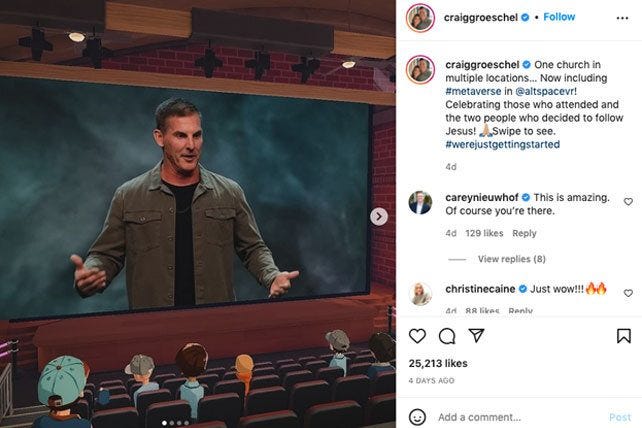
Screen grab from Instagram: @craiggroeschel.
“I'm a Gay, Celibate Pastor of a Conservative Church. Here's a Trick for De-Escalation” - Back in July, I wrote about my friendship with Greg Johnson and the travails he has endured as a gay but celibate pastor in our denomination, the Presbyterian Church in America. I’ve always been (and still am) in Greg’s corner, but I’m trying to make sense of his column in USA Today. He writes:
“Nearly every family has someone that people secretly hope doesn't come home for the holidays. You know who they are. No one will admit it, but you’re ashamed of them. Embarrassed. They make your skin crawl. You cringe at their inappropriate jokes. Their pontificating.
So you try to brainstorm. How can I spend at least one hour with these people before having to leave when my prearranged emergency phone call comes through – the one requiring my sad but necessary departure?
But what if you're the one whom family members hope won't come? I know a thing or two about that.”
Empathizing with the audience, building relational credibility - good things to do at the start of an article. But here’s where things get troubling for me:
“I'm just a gay atheist kid who fell in love with Jesus in college and ended up the lead pastor of a historic Presbyterian church in one of America's most conservative evangelical denominations. Like 698,000 other adults in America, I tried to change my sexual orientation over the years. Of course, it never changed.
You can imagine how fun denominational gatherings can be. Me with a couple thousand mostly older white, churchgoing, Southern, heterosexual religious conservatives with children and grandchildren and seersucker suits. One of us is not like the others.”
I’ve not known Greg to hold a “frozen-forever” view of same-sex attraction, (though as he documents in his new book, true cases of gay-to-straight orientation change are exceedingly rare). When I asked him about it, he said the editor at USA Today added the “of course” and changed his original line of “mine never changed.” He agreed it came off glib. And sure, there are a lot of older, white, conservative males in the southern PCA, but are these labels the sum of their identity? Are they somehow at fault for being white, older, or heterosexual? Greg didn’t mean it derogatorily, but I'm concerned that people will hear his words as words of derision and of mockery of Christ’s Bride.
That said, I get the overall analogy trying to be made, and because of his recently-released book, Still Time to Care: What We Can Learn from the Church’s Failed Attempt to Cure Homosexuality, I’m glad for the opportunity to get word of it out to a wider audience. But while I understand from Greg and believe the best that the piece was written for a secular audience to share the Gospel, I’m not sure certain others in the PCA will. Sections like this may hurt the cause:
“Yes. Gatherings with the spiritual family – at least at the denominational level – are awkward for me right now. So how can we stay even briefly in a space that feels so uninviting?
Certainly, for many of us, where families have become places of abuse, it may not be an option. There is a time to leave. But when speaking about family members who merely annoy you, how do you make it?
How can we accept our family members without demanding that they change and think like we do?”
Greg speaks more positively (which I’ve always known him to do) of said family members later in the article. And for those caught in an uncomfortable corner on Christmas, he offers tangible suggestions (anti-anxiety drugs, counseling, a wing man, affirmation and redirection) with multiple Gospel-laden paragraphs about Jesus’ love for him being “a deeper resource” available for others, too.
But what’s confusing is that Greg’s proclamation of the Gospel seems to be at the expense of the Church, written to a broader culture always glad to hear stories of Her struggles. It’s a broad brush to paint the whole PCA as a “space [that] feels so uninviting” and with “members who merely annoy you” - statements that could be easily misinterpreted and in themselves cause offense.
I don’t support the overtures (23 and 37), and I hope the presbyteries currently engaged in discussion concerning them vote against them. But I wonder how much Greg’s article and tone - the latter of which up has been, up to this point, winsome and graceful - will be used by critics to sabotage his efforts
And, because I love Greg, I hope PCA readers will have more empathy to wonder what it's like to be him in our denominational spaces.
To Be a Part of Christmas
Several years ago, I read (or, I should say, “started”; I never finished) The Battle for Christmas, a 1997 Pulitzer Prize finalist in History by University of Massachusetts, Amherst, professor emeritus Stephen Nissenbaum. Nissenbaum’s scholarship focuses on early American history through to the nineteenth century, and while he is more known for his work with the late Paul Boyer on the Salem Witch Trials, his sub-titled “cultural history of America’s most cherished holiday” initially piqued my interest.
Nissenbaum (who is Jewish) wrote in his preface that,
“For me, growing up as I did in an Orthodox Jewish household, [“The Night Before Christmas”] was surely part of my fascination for Christmas itself, that magical season which was always beckoning, at school and in the streets, only to be withheld each year by the forces of religion and family. (I once decided that Christmas must mean even more to America’s Jewish children than to its Christian ones.) I can remember, one Christmas Day, putting some of my own toys in a sack and attempting to distribute them to other children who lived in my Jersey City apartment house: If I couldn’t get presents, at least no one stopped me from giving them away, and in that fashion at least I could participate in the joy of what, much later, I would come to think of as the ‘gift exchange.’”
Young Nissenbaum’s determination to participate in what he understood to be “that magical season” is fascinating, particularly when one considers the extremes he went to in order to do so (i.e. giving away his toys since he couldn’t get any for himself). He recognized the joy of the holiday, and figured out a way to become a part of it.
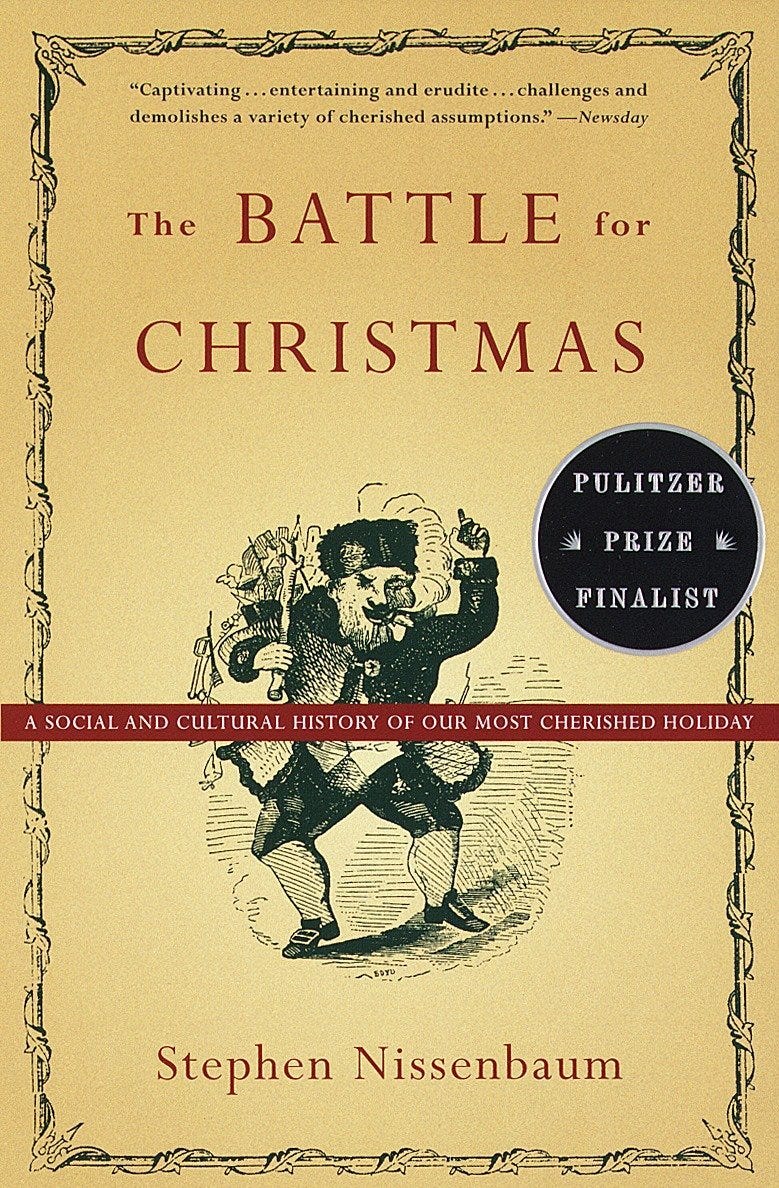
More Worthwhile than Westboro
Just yesterday, Megan Phelps-Roper wrote a sad but ultimately beautiful piece in which she chronicled part of her life growing up as the granddaughter of the founder of Westboro Baptist Church. Throughout her childhood, she was taught that “God hates Christmas,” but after leaving the cult at 26, she saw beyond her family’s vicious protests and began to understand and long for a place in the traditions:
“I watched new friends and loved ones delight in the season, their coming together with joy and generosity with family faraway. It became a time of reflection—not to remember and mourn for sin, as my family demanded, but with a powerful gratitude that has redeemed even the Covid years. I came to see these periodic celebrations not as a denial of all that’s wrong in the world or in our lives, but as a reminder of the beauty we hope to preserve in them—a choice to build on good things, which is both more difficult and more worthwhile than the choice to tear down and root out.”
Like Nissenbaum, she also wanted to be a part, but it took walking away from her hateful family and their toxic ways to be able to do so.
A Heart of Hope
The story of Christmas - of God becoming flesh to bear and die for the penalty of our sins on the cross - is the greatest story ever told. Do you want to be a part of it? I do.
This Christmas, my hope is you and I will sense a desire to be a part - to belong - and to respond to the the good news that Jesus Christ was born for sinners like you and me to die on our behalf that we might live and have the hope of eternal life.
I want to be a part of that hope…and I want that hope to be a part of me. I pray the same is true for you this Christmas and leave you with the words of Hebrews 3:12-14:
“Take care, brothers, lest there be in any of you an evil, unbelieving heart, leading you to fall away from the living God. But exhort one another every day, as long as it is called ‘today,’ that none of you may be hardened by the deceitfulness of sin.”
Like Nissenbaum, like Phelps-Roper, may the desire of our hearts be to be a part.
Merry Christmas.
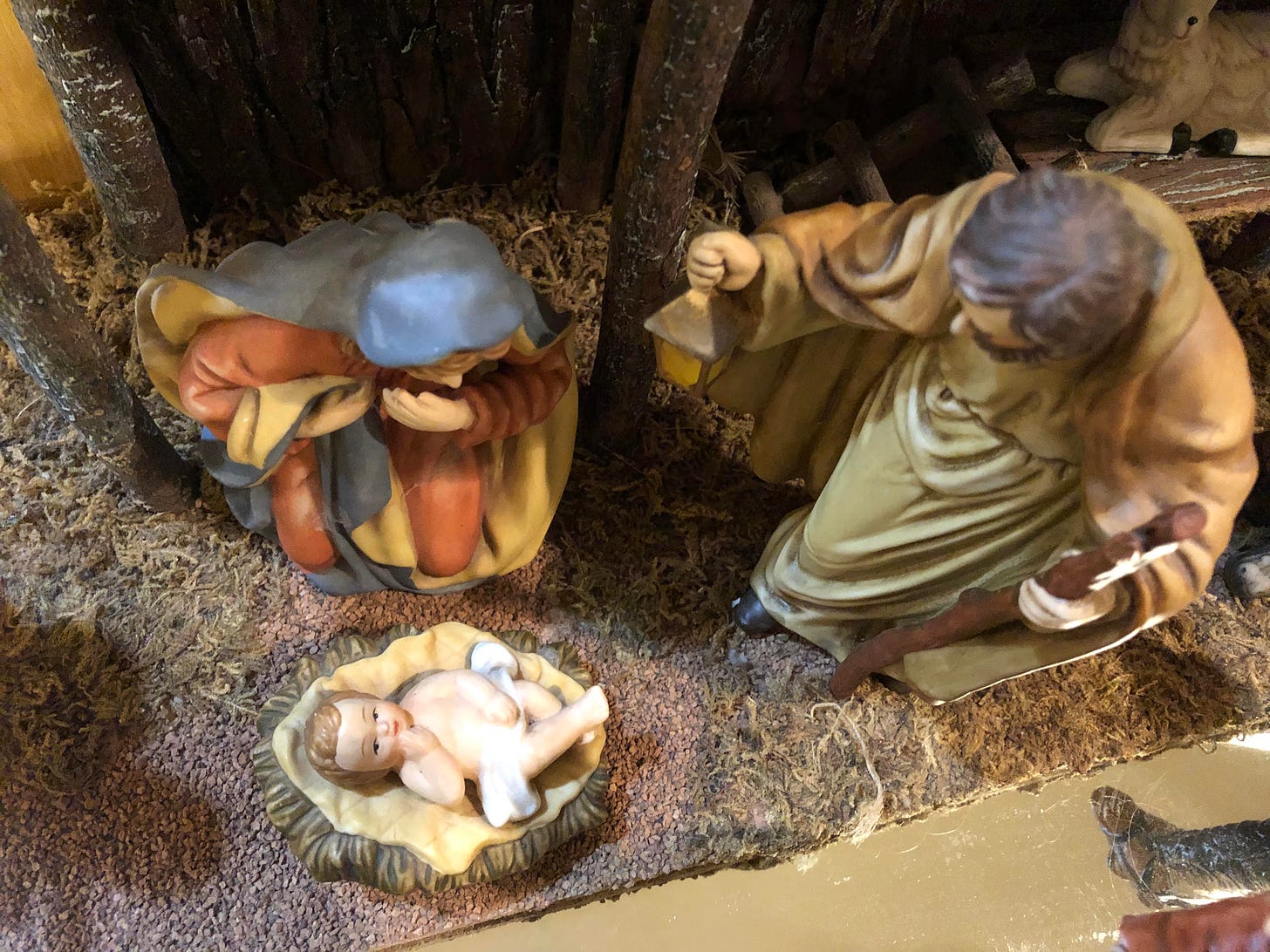
Post(erity): Christmas Eve Assembly Goes Digital
Each week, I choose a post from the past that seems apropos of something (of course, you’re always welcome to search the archives yourself whenever you like).
I didn’t post artwork here this time as it would give away the coolest group Christmas present Megan and I ever gave the girls. You’ll have to click the link for this Post(erity) post from December 2010, titled “Christmas Eve Assembly Goes Digital.”
Peaches’ Picks: Orpheus Ascending
Peaches and I are reading an original play by a former student, Elsa Bentz (soon to be Wintersteen), who took the story of Orpheus and Eurydice (see Virgil’s Georgics, Ovid’s Metamorphoses, Tennessee Williams’ Orpheus Descending, or the musical Hadestown) and crafted a three-act play to be performed at Montana State’s Black Box Theater this spring.
Orpheus Ascending’s redemptive twist on the story involves a Grandfather character, and Elsa has asked me to play the role (I'm secretly hoping to be buried under tons of makeup). So, 30 years since performing on a local stage (and despite trying to talk her out of this very bad idea), I’m hoping to bring out whatever acting chops are still there (if any ever were) and join the fun. Rehearsals are mid-January; performances run March 24-27. Pray for my line memorization (beginning over Christmas break).
Fresh & Random Linkage
“Hallmark Christmas Movies Are Like Mad Libs, So We Made One for You” - Two of my least favorite things in the world, combined for your enjoyment.
Until next time.
Why Subscribe?
Why not? Second Drafts is a once-a-week newsletter delivered to your inbox (you can also read it online or through your RSS reader) and it’s totally free.
Keep Connected
You’re welcome to follow me on Twitter.




